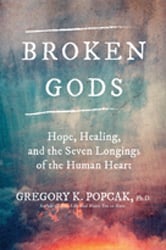I can’t remember the last time I sat down and read something from the bible. In my academic studies I did a lot of work with the first three chapters of Genesis. Occasionally I’d pay attention to the scripture readings at church services when I’d sing there. I was surprised, and I’m not sure why, to discover just how terribly boring is the gospel of Matthew.
Something I remember from my religious studies days, and which was clear as day to me as I read Matthew, is that this gospel was written with a Jewish audience in mind. Jesus is written to parallel Moses – climbing up on mountains and receiving wisdom (Sermon on the Mount and the Transfiguration), the flight of exile into Egypt (this one doesn’t occur in any other gospel). The genealogy in the beginning of the book is there to establish Jesus’s Jewish cred. Jesus very specifically mentions a couple of times that he is not here to preach to the Gentiles and even instructs his disciples not to worry about the Gentiles. (‘Go nowhere among the Gentiles, and enter no town of the Samaritans…’ 10:5)
And that, plus all the references to ‘Old Testament’ scripture, drives home the fact that I don’t feel like this religion is for me. I know full well that there is a mystic strain in Christianity that I quite like. I find it the Eastern Orthodox tradition and parts of the Roman Catholic and Protestant traditions, and in the Gnostic side of things. That mystic essence is beautiful, powerful and fully part of the greater Christian tradition. But if I actually read the Gospels and read what Jesus says…. well, in spite of all his wisdom (and there are great, universal truths and wisdom for the ages that I think almost all spiritual/religious people can agree on) I am not Jewish and he is not speaking to me.
Something that surprised me as I read along was that parts jumped out at me – verses that I hadn’t thought about in years but are so deeply ingrained into my memory that I could tell which parts I had given a lot of thought to once, parts I had prayed over. I have taken the words of Jesus deeply into my person. It’s fascinating to realize how important his words have been in shaping my morals, my spiritual strength, my view of the world. I notice that I have especially taken to heart the verses about knowing a tree by its fruit (12:33).
See, even then and even now I see Jesus as an agent of social justice. I also see him as a Jewish radical – hoping to shake up his faith and also the secular powers that be, but most importantly he wanted spiritual renewal among his people; chapter 23 is especially harsh toward the Pharisees. Cool. I can totally support that. All aspects of the status quo need shaking up from time to time. ‘Do not think that I have come to bring peace to the earth; I have not come to bring peace, but a sword.’ (10:34) Jesus in the temple at the tables of the money changers sure sounds like the Occupy movement/s to me! (12:-13)
I love the admonishments to get one’s own person in order and eschew public praise for holiness (6:1-8, 6:16-18), to forgo attachment to wealth and things, to be humble (7:1-5), to pursue mercy, and to basically pursue the spirit of the law over the letter of the law (7:12; all of the Sermon on the Mount, in my opinion).
A favorite passage: ‘Do not store up for yourselves treasures on earth, where moth and rust consume and where thieves break in and steal; but store up for yourselves treasure in heaven, where neither moth nor rust consumes and where thieves do not break in and steal. For where your treasure is, there your heart will be also.’ (6:19-21)
I also like the parables that talk about the worth of the kingdom of heaven, which for me is not so much the Kingdom of Heaven as it is the spiritual life. ‘The kingdom of heaven is like a merchant in search of fine pearls; on finding one pearl of great value, he went and sold that he had and bought it.’ (13:45)
I’d love to know what Jesus really meant by the ‘Son of Man.’ I’d love to know if he was as cantankerous and joyless as the gospel suggests. Surely he must have been extremely charismatic – beyond his acts of magic (because that’s what miracles are, and I don’t doubt that he healed and did some amazing things).
The book of Matthew starts out as what feels like a history lesson full of great spiritual insight and slowly gets more militant and concerned with the Messiah’s return/apocalypse. And that’s something else that’s bothered me for a long time: if Jesus was the Messiah and he was here on earth (‘God with us’) then why are we still waiting around for him to return? Why did Jesus himself talk about the ‘coming of the Son of Man’ and all of his parables about lamps and oil and brides and bridegrooms (24:36-25:13)?
I also admit I dislike the tremendous amount of slave/lord language. I can dismiss a lot of this knowing that this books was written in a vastly different time and place. What is more troubling to me is the continued insistence on using Lord and Master language today. The feudal context does not sit well in modern times; it is not a worthwhile metaphor anymore.
We all know how the story ends (SPOILER ALERT): crucifixion and resurrection. The hero dies. But he doesn’t really! Jesus has been foreshadowing this… ok, straight up telling us his death is coming for a while now. But I find the scene in the garden of Gethsemane very moving (26:36-56). Jesus is vulnerable and praying. He wants his friends with him. He says to God, ‘My Father, if it is possible, let this cup pass from me, yet not what I want but you want.’ This is one of the few moments where I see Jesus as an emotional, multi-dimensional person. He might actually be scared. He might not actually want what he sees as inevitable. Much of the language in the Christian church goes on and on about Jesus dying for sins and the will of God, but here, we see it wasn’t an easy thing for Jesus to do. (This is not to say that I subscribe to the idea that we all are responsible for killing Jesus because of our sin. I have huge problems with the economic and juridical theories of salvation.)
I also find the mocking of Jesus (27:27-32) particularly sad and pitiless. Who mocks a man on the way to his death? Who mocks a man dying before your very eyes – or even as you are dying as well?? (27:39-44)
So there. I’ve re-read the Gospel of Matthew. The Sermon on the Mount wasn’t as amazing this time around. I know too much. I still find the first half of the story to contain an incredible amount of worthy spiritual advice. But I was not all that moved, nor have I gained any new insights.















